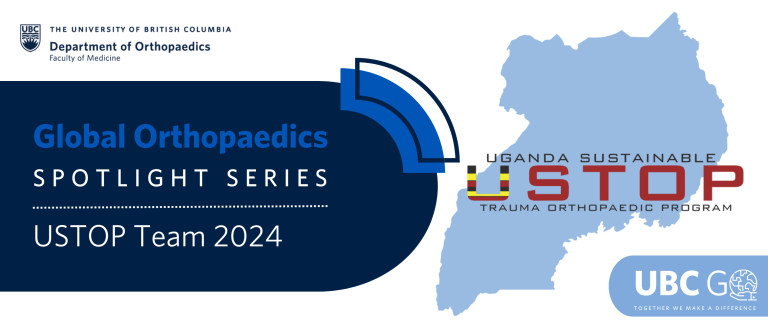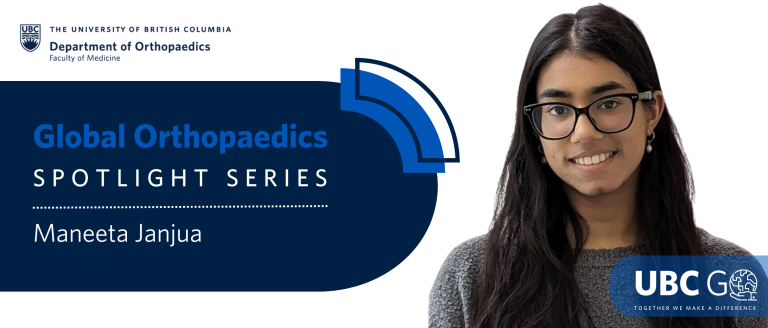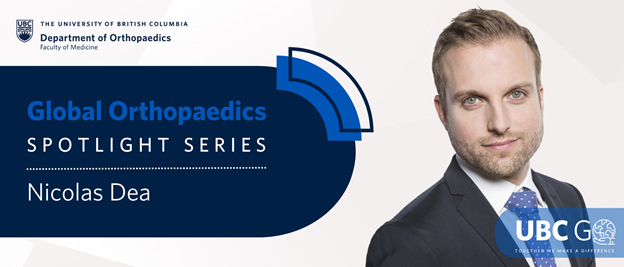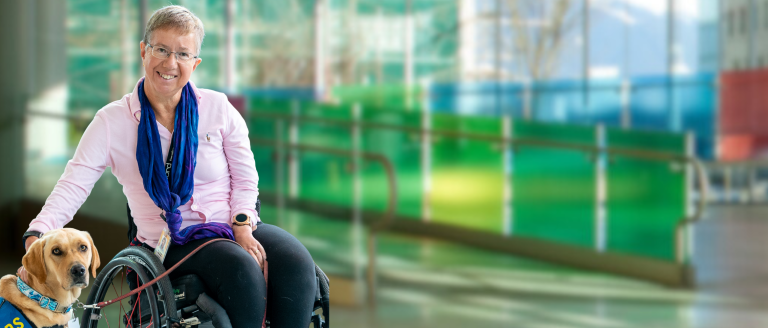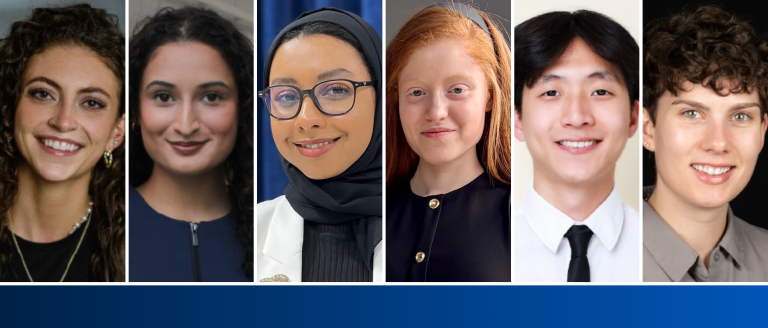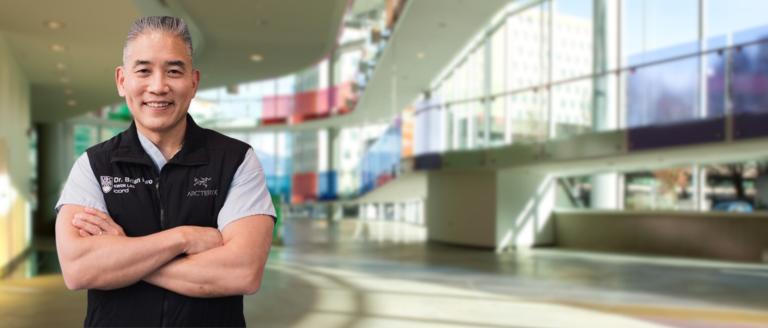Our UBC Global Orthopaedics (UBC GO) Spotlight series features in-depth conversations with a UBC Department of Orthopaedics member about their involvement in global orthopaedic initiatives. In this spotlight, we learn about UBC Clinical Assistant Professor and orthopaedic trauma surgeon, Dr. David Stockton.
Since residency, Dr. Stockton has been unwavering in his dedication to elevate orthopaedic trauma care through the Uganda Sustainable Trauma Orthopaedic Program (USTOP). Collaborating with surgeons like Dr. Peter O’Brien, Dr. Piotr Blachut, and Dr. Jeffrey Potter, he not only enhanced the capacity of care in Uganda, but also teamed up with UBC’s Engineers in Scrubs to develop a device specifically designed to aid in hip fracture surgeries. Through his efforts with education and research in Uganda, Dr. Stockton has also gained profound insights into the challenges faced in low-resource communities. Explore the inspiring and passionate endeavors of Dr. Stockton as he continues to transform Uganda’s orthopaedic trauma care system.
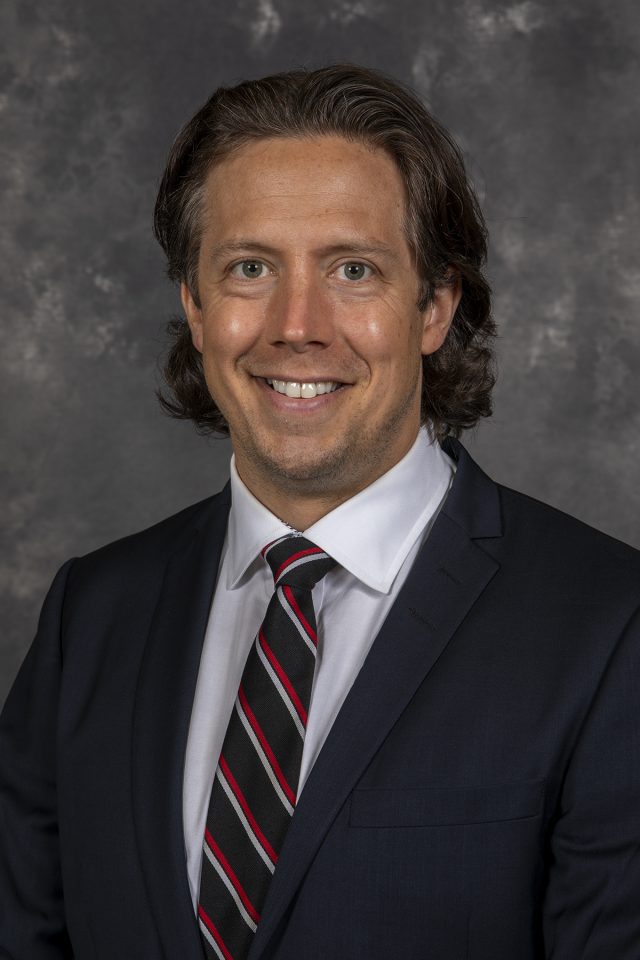
DAVID STOCKTON
Project/Initiative:
Uganda Sustainable Trauma Orthopaedic Program (USTOP)
What inspired your interest in global health/surgery/orthopaedics?
I was a second-year resident in 2015 when I heard that Dr. O’Brien and some of his colleagues were doing yearly trips to Uganda with an organization called USTOP. There were three things that piqued my interest – I wanted to get involved with global surgery, I liked to travel, and liked the subspecialty of trauma, so I asked Dr. O’Brien about the initiative. Dr. O’Brien indicated that on every trip they usually take one or two residents, and he invited me along.
What did you do?
I didn’t know what I was getting into, but I loved it. I loved working alongside the Ugandan orthopaedic residents, interacting with patients, and seeing an entirely different health system in which orthopedic trauma care was growing and developing. Dr. O’Brien, Dr. Blachut, and Dr. Potter have greatly contributed to helping Ugandan surgeons grow their capacity for providing orthopedic trauma care.
I also started a research project while I was down there. I received funding from the Branch for International Surgical Care (BISC) and from an AO Trauma Resident Grant to run the project for the next five years. I had the opportunity to go back in 2018 as part of another organization called Engineers in Scrubs. As part of that organization, my colleagues and I built a device to help with hip fracture surgery since they lacked a traction table.
One thing we’re probing and looking into is sustainability. Do you think your projects were able to achieve sustainability?
USTOP has emphasized sustainability and that’s one of the things that drew me to the initiative in the first place. The focus of the trips was more on education and training rather than doing dozens of surgeries. I think the USTOP model of a longitudinal partnership focused on education seems to really empower local surgeons. Though that is the USTOP model, other global surgical initiatives have their own methods, and each have incredible value. Others may focus on donating equipment, training fellows from LMICs, or on performing complex surgeries that aren’t otherwise available in low-resource settings. I think the common thread, that which guarantees sustainability, is to keep going back.
With regards to the projects that I contributed to; our research project was able to generate useful knowledge specific to sub-Saharan Africa about how open tibia shaft fractures are treated. For the traction table device, COVID unfortunately put a pause on USTOP trips to Uganda, so we have not yet been able to follow up on its uptake.
Looking back, what do you think were the key insights and main barriers that you faced?
Key takeaways:
- The trips opened my eyes to how prevalent orthopedic trauma is in LMICs – open lower extremity fractures are an epidemic that has risen along with expanding road networks and vehicle use. One of the biggest areas where orthopedic surgeons can make a difference is the care of orthopedic injuries in low- and middle-income countries.
- The orthopaedic surgeons and trainees in Uganda have an inspirational passion for their work. I felt honoured to work alongside them and they probably taught me more than I was able to teach them.
- There are incredible opportunities for research in LMICs. The research questions are unique to the challenges they face in low-resource environments and therefore its ideal when data comes from studies that are generalizable to the situations they face. This work can be done in a culturally sensitive, collaborative manner as well, which enriches long-standing partnerships like the USTOP program.
Barriers:
- Making the time to go on these trips, especially as a resident, was a challenge. However, with the expanded elective time available to residents now, perhaps there is an opportunity for such trips to serve as global surgery electives.
Are you working on any projects right now? What are your future plans/implications?
Right now, we are working on getting back to Uganda post-COVID and re-establishing the partnerships there. I hope to continue to support some research projects there as well.


